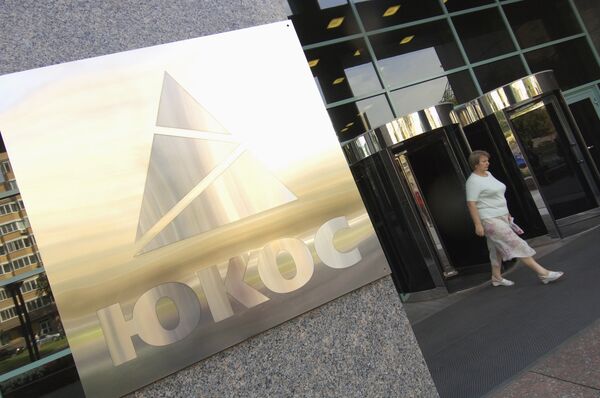MOSCOW, July 29 (RIA Novosti) - Former Yukos shareholders ready to find a compromise with Russian authorities over the implementation of the Hague arbitration court’s decision, said Tim Osborne, director of Menatep Group, which now exists as holding company GML and was Yukos' core shareholder.
“GML is always prepared to talk to the Russian Federation and to listen to a reasonable proposal,” Osborne told RIA Novosti Tuesday. “If Russia was to act sensibly, and comes and talks to us and make a sensible proposal to us, it can all be over by Christmas.”
On Monday, the Hague’s Permanent Court of Arbitration ruled that Russia must pay a group of shareholders in the now-defunct Yukos $51.6 billion, just under half of their $114 billion claim, for expropriating the company’s assets. Russia has also been ordered to pay about $65 million in legal costs.
Russia said it would appeal the ruling by an arbitration panel in the Netherlands, adding that the Hague's Arbitration Court had no jurisdiction to review the shareholders' claims because the Russian Federation has not ratified the Energy Charter Treaty.
According to Osborne, if the compensations issue is not settled with the Russian authorities, the lawyers will have to “seek enforcement and we have to look for assets belonging to the Russian Federation in jurisdictions where they are subject to the New York Convention which is pretty much every country in the world.”
“Companies that belong to Russian government are potentially at risk. Any commercial asset that we can find, real state or commercial business,” Osborne told RIA Novosti. “It can’t be sovereign assets. We can’t attack embassies - we have to respect sovereign property, but there are other property that Russia owns throughout the world that we can attach.”
In 2003, Russia’s authorities accused the leadership of Yukos, once the largest oil company in the country, of economic crimes. A range of Yukos managers were convicted for fraud and tax evasion. Yukos was later declared bankrupt and state-controlled oil company Rosneft bought the bulk of its assets.
Yukos' managers contended that the Russian government illegally forced the oil firm out of business and bankrupted it, which allowed Rosneft to snap up its assets and become Russia’s largest oil producer.
Yukos founder Mikhail Khodorkovsky had spent a decade in prison for fraud and tax evasion until he was pardoned in December 2013.


